Intro
Manage Gerd symptoms with effective self-care tips, including dietary changes, stress reduction, and lifestyle modifications to alleviate acid reflux and improve digestion, promoting overall gut health and wellness.
Gastroesophageal reflux disease, commonly referred to as GERD, is a condition where stomach acid frequently flows back into the tube connecting your mouth and stomach (esophagus). This backwash (acid reflux) can irritate the lining of your esophagus, causing discomfort. Although GERD can be a persistent and painful condition, there are several self-care tips that can help alleviate its symptoms and improve your quality of life.
Many people experience occasional acid reflux, but when it occurs more than twice a week, it can be considered GERD. The condition is often associated with symptoms such as a burning sensation in the chest (heartburn), difficulty swallowing, and a sour taste in the mouth. If left untreated, GERD can lead to complications like esophagitis, stricture, and Barrett's esophagus. However, by adopting a few simple self-care strategies, you can reduce the frequency and severity of your symptoms.
Understanding the causes and triggers of GERD is essential in managing the condition. Certain foods, eating habits, and lifestyle choices can exacerbate acid reflux. For instance, consuming fatty or fried foods, chocolate, citrus fruits, and tomatoes can relax the lower esophageal sphincter, allowing stomach acid to flow back into the esophagus. Additionally, eating large meals, lying down after eating, and wearing tight clothing around the waist can also trigger GERD symptoms. By being aware of these triggers, you can take proactive steps to prevent and manage your condition.
Gerd Self Care Overview
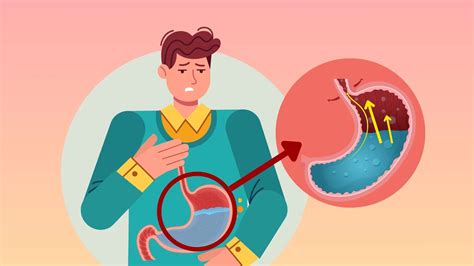
A comprehensive self-care plan for GERD involves a combination of dietary changes, lifestyle modifications, and stress management techniques. By making a few simple adjustments to your daily routine, you can significantly reduce your symptoms and improve your overall well-being. For example, eating smaller, more frequent meals can help reduce pressure on the lower esophageal sphincter, while avoiding trigger foods and drinks can minimize acid reflux. Furthermore, maintaining a healthy weight, quitting smoking, and managing stress through relaxation techniques like deep breathing, yoga, or meditation can also help alleviate GERD symptoms.
Dietary Changes for Gerd
Some specific dietary changes that can help manage GERD include: * Eating lean proteins like chicken, fish, and tofu * Incorporating low-fat dairy products and whole grains into your diet * Avoiding spicy, fatty, or high-fiber foods that can trigger acid reflux * Drinking plenty of water to stay hydrated and help with digestion * Avoiding citrus fruits, tomatoes, and other acidic foods that can irritate the esophagusLifestyle Modifications for Gerd

In addition to dietary changes, lifestyle modifications play a crucial role in managing GERD. Some key lifestyle changes include:
- Raising the head of your bed by 6-8 inches to prevent stomach acid from flowing back into the esophagus while sleeping
- Avoiding tight clothing that can put pressure on the stomach and worsen acid reflux
- Quitting smoking and avoiding secondhand smoke, which can relax the lower esophageal sphincter and exacerbate GERD symptoms
- Managing stress through relaxation techniques like deep breathing, yoga, or meditation
- Getting regular exercise to help maintain a healthy weight and improve overall digestive health
Stress Management Techniques for Gerd
Stress can exacerbate GERD symptoms, so it's essential to incorporate stress management techniques into your self-care plan. Some effective stress management techniques include: * Deep breathing exercises to help calm the mind and body * Yoga or tai chi to promote relaxation and reduce stress * Meditation or mindfulness practices to help manage stress and anxiety * Progressive muscle relaxation to release physical tension and promote relaxation * Keeping a journal or writing down your thoughts and feelings to process and manage stressGerd Self Care Tips and Tricks
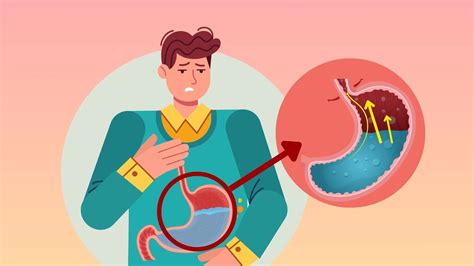
Here are some additional self-care tips and tricks to help manage GERD:
- Avoid eating before bedtime or lying down after meals
- Wear loose, comfortable clothing that doesn't put pressure on the stomach
- Avoid bending or stooping, which can put pressure on the stomach and worsen acid reflux
- Try over-the-counter antacids or acid reducers to help alleviate symptoms
- Keep a food diary to track trigger foods and identify patterns in your symptoms
Gerd Self Care Product Options
There are several over-the-counter products available to help manage GERD symptoms. Some common product options include: * Antacids like Tums, Rolaids, or Mylanta to help neutralize stomach acid * Acid reducers like Zantac or Pepcid to reduce acid production in the stomach * Histamine-2 (H2) blockers like ranitidine or famotidine to reduce acid production in the stomach * Proton pump inhibitors (PPIs) like omeprazole or lansoprazole to block acid production in the stomachGerd Self Care and Lifestyle Changes

In addition to self-care tips and product options, making lifestyle changes can significantly improve GERD symptoms. Some key lifestyle changes include:
- Maintaining a healthy weight to reduce pressure on the stomach and lower esophageal sphincter
- Quitting smoking and avoiding secondhand smoke to reduce inflammation and promote healing in the esophagus
- Managing stress through relaxation techniques like deep breathing, yoga, or meditation to reduce stress and anxiety
- Getting regular exercise to improve overall digestive health and reduce symptoms of GERD
- Avoiding trigger foods and drinks to minimize acid reflux and alleviate symptoms
Gerd Self Care and Nutrition
Nutrition plays a crucial role in managing GERD symptoms. Some key nutritional considerations include: * Eating a balanced diet rich in whole foods, fruits, and vegetables to promote overall digestive health * Avoiding trigger foods and drinks that can exacerbate acid reflux * Incorporating probiotics or prebiotics into your diet to promote a healthy gut microbiome * Drinking plenty of water to stay hydrated and help with digestion * Avoiding spicy, fatty, or high-fiber foods that can irritate the esophagus and worsen symptomsGerd Self Care and Mental Health
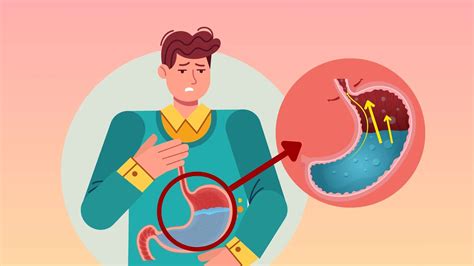
Mental health is closely linked to physical health, and managing stress and anxiety can significantly improve GERD symptoms. Some key mental health considerations include:
- Practicing relaxation techniques like deep breathing, yoga, or meditation to reduce stress and anxiety
- Engaging in regular exercise to improve mood and reduce symptoms of depression and anxiety
- Connecting with friends and family to build a support network and reduce feelings of isolation
- Seeking professional help if you're struggling with anxiety, depression, or other mental health concerns
- Keeping a journal or writing down your thoughts and feelings to process and manage stress
Gerd Self Care and Sleep
Getting quality sleep is essential for overall health and can help alleviate GERD symptoms. Some key sleep considerations include: * Raising the head of your bed by 6-8 inches to prevent stomach acid from flowing back into the esophagus while sleeping * Avoiding eating before bedtime or lying down after meals * Creating a relaxing bedtime routine to promote relaxation and reduce stress * Avoiding screens and electronic devices before bedtime to promote better sleep * Getting regular exercise to improve overall sleep quality and reduce symptoms of GERDGerd Self Care and Travel
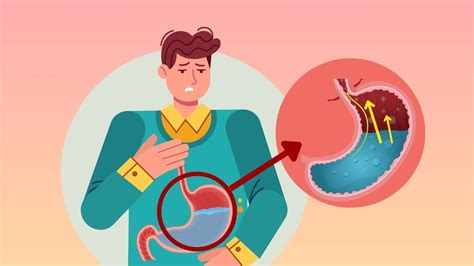
Traveling with GERD requires some planning and preparation to ensure a comfortable and enjoyable trip. Some key travel considerations include:
- Packing a travel-sized first aid kit with essentials like antacids, acid reducers, and pain relievers
- Bringing a copy of your prescription and a list of your medications
- Researching local healthcare options and finding a doctor or hospital in case of an emergency
- Avoiding trigger foods and drinks while traveling
- Staying hydrated and bringing a refillable water bottle to reduce plastic waste and stay healthy
Gerd Self Care and Work
Managing GERD symptoms at work can be challenging, but there are several strategies to help alleviate symptoms and improve productivity. Some key work considerations include: * Taking regular breaks to stretch, move around, and reduce stress * Avoiding trigger foods and drinks at work * Keeping a stash of healthy snacks and water at your desk * Using a standing desk or ergonomic chair to reduce discomfort and promote better posture * Communicating with your employer and colleagues about your condition and any accommodations you may needGerd Self Care and Relationships
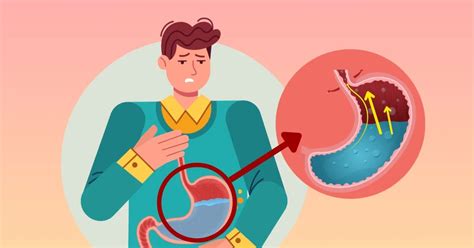
GERD can impact relationships with family and friends, but open communication and support can make a significant difference. Some key relationship considerations include:
- Educating loved ones about your condition and how it affects you
- Asking for support and help when needed
- Being open and honest about your symptoms and any challenges you're facing
- Building a support network of friends, family, and healthcare professionals
- Prioritizing self-care and making time for activities that bring joy and relaxation
Gerd Self Care and Finances
Managing GERD can be expensive, but there are several strategies to reduce costs and improve financial health. Some key financial considerations include: * Researching affordable treatment options and generic medications * Using coupons, discounts, or patient assistance programs to reduce costs * Prioritizing self-care and investing in healthy habits like regular exercise and balanced nutrition * Building an emergency fund to cover unexpected medical expenses * Reviewing and adjusting your budget to accommodate any changes in your lifestyle or treatment planGerd Self Care and Future

While GERD can be a challenging condition to manage, there is hope for the future. Researchers are continually working to develop new treatments and therapies to improve symptoms and quality of life. Some potential future developments include:
- New medications or therapies that target the underlying causes of GERD
- Advances in surgical techniques or devices to treat GERD
- Increased awareness and education about GERD and its impact on mental and physical health
- More research on the link between GERD and other conditions like obesity, diabetes, and mental health disorders
- Development of personalized treatment plans that take into account individual needs and circumstances
As you continue on your journey to manage GERD, remember that you're not alone. There are many resources available to support you, from online communities and support groups to healthcare professionals and treatment options. By prioritizing self-care, making lifestyle changes, and seeking support when needed, you can take control of your symptoms and improve your overall quality of life.
We hope this article has provided you with valuable insights and practical tips to manage GERD symptoms and improve your overall well-being. If you have any questions or comments, please don't hesitate to reach out. Share this article with a friend or family member who may be struggling with GERD, and let's work together to build a supportive community that prioritizes health, wellness, and self-care.
What are the common symptoms of GERD?
+Common symptoms of GERD include heartburn, regurgitation, difficulty swallowing, and a sour taste in the mouth.
How can I manage GERD symptoms through dietary changes?
+Eating smaller, more frequent meals, avoiding trigger foods and drinks, and incorporating low-fat dairy products and whole grains into your diet can help manage GERD symptoms.
What lifestyle changes can I make to alleviate GERD symptoms?
+Maintaining a healthy weight, quitting smoking, managing stress through relaxation techniques, and getting regular exercise can help alleviate GERD symptoms.
Are there any over-the-counter products available to help manage GERD symptoms?
+Yes, there are several over-the-counter products available, including antacids, acid reducers, and histamine-2 (H2) blockers, that can help manage GERD symptoms.
How can I prioritize self-care and manage GERD symptoms?
+Prioritizing self-care, making lifestyle changes, and seeking support when needed can help manage GERD symptoms and improve overall quality of life.
